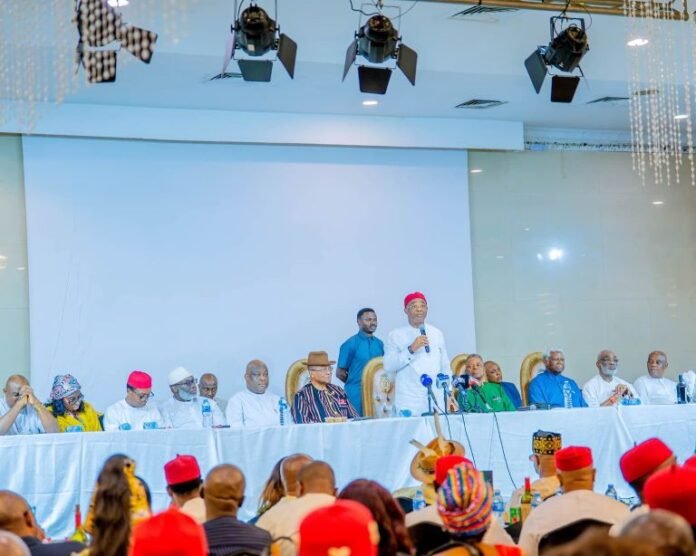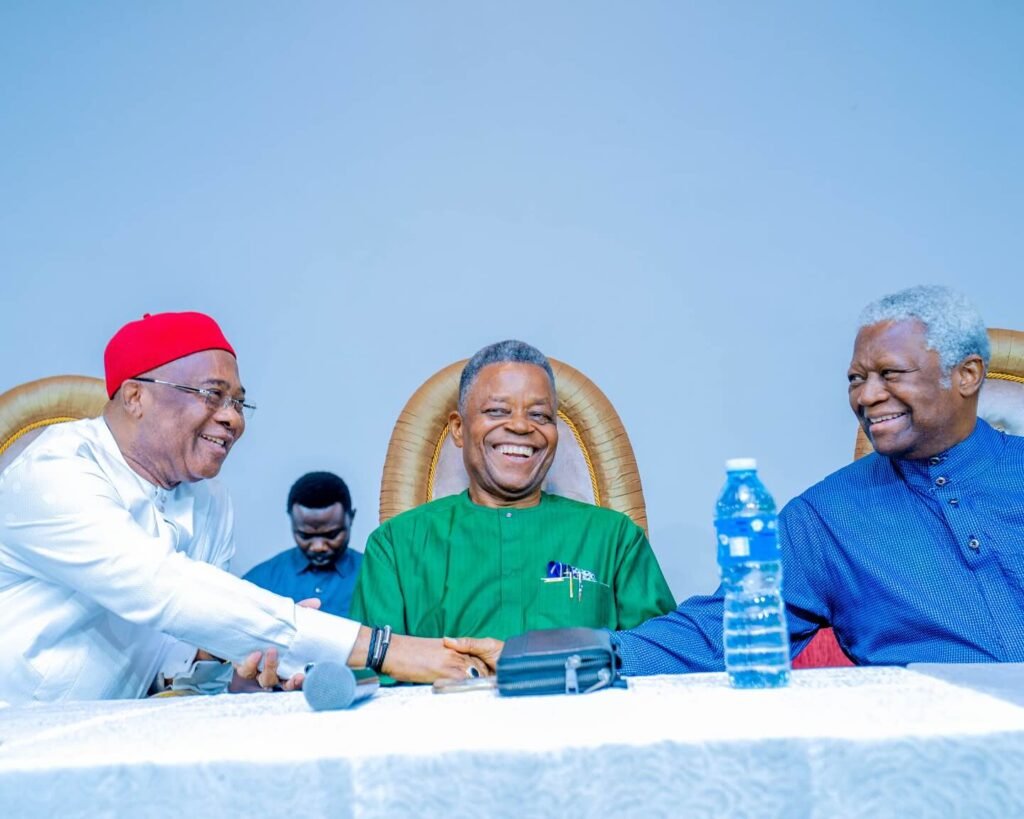Imo State Governor, Senator Hope Uzodimma, has received the official report on behalf of South East Governors about the controversial demolition of buildings in Lagos. The report came from a Joint Committee formed by the Lagos State Government to investigate the issue.
The demolition affected many structures reportedly owned by people from the South East, especially the Igbo community in Lagos. Many of the affected property owners claimed they had valid building permits and were unfairly targeted.
Uzodimma joined members of the Ndi Igbo community in Lagos to receive the committee’s findings. The committee was set up after an earlier meeting between South East leaders and Governor Babajide Sanwo-Olu.
Demolition Disputes and Alleged Ethnic Targeting
Several residents and business owners from the South East have cried out in recent months over the frequent demolitions of buildings in parts of Lagos. Many of the demolished structures were said to be owned by Igbos, raising ethnic concerns.
In multiple cases, families said they were not given proper notice. Some claimed the demolitions occurred despite ongoing legal cases in court.
“We invested our life savings in these buildings,” a displaced resident from Alaba International Market area said. “Now we sleep outside with our children.”
Other communities affected include Trade Fair Complex and parts of Okota, where shops and homes were also removed by bulldozers.
Some Igbo leaders have accused Lagos officials of selectively targeting South East-owned properties. They claim that buildings in the same zones owned by others were spared.
The Lagos government, however, insists that all demolitions followed due process. It said affected buildings either violated planning laws or obstructed drainage channels.
Joint Committee Promises Transparency
After pressure from South East leaders, Governor Sanwo-Olu agreed to create a Joint Committee. The group included members from Lagos agencies and Igbo stakeholders.
Governor Uzodimma said the report presented was the outcome of “inclusive and collaborative deliberations.” He added that it shows a “constructive and equitable path forward.”




“As Governors of the South East,” Uzodimma said, “we remain steadfast in our commitment to ensuring that the recommendations of this report are implemented in a way that promotes justice, equity, and unity.”
He urged all Nigerians to work together and promote national unity.
“Nigeria belongs to all of us,” Uzodimma said. “We must support efforts for inclusive development.”
The Way Forward for Affected Residents
The committee’s report has not yet been made public, but South East leaders have pledged to follow up on its recommendations. Affected residents are hopeful that compensation or relocation plans will be announced soon.
Many observers say the issue has revealed long-standing tensions about land use and identity in Lagos, a city with people from all parts of Nigeria. Civil groups have called on the federal government to monitor how state authorities carry out demolitions, especially when they affect minority populations.
Meanwhile, South East leaders continue to press for fairness in urban development decisions in Lagos. They have promised to remain engaged with Lagos authorities until a peaceful resolution is reached.
Rate, Like 👍, Comment, share this article and Follow us on our social media handles.









